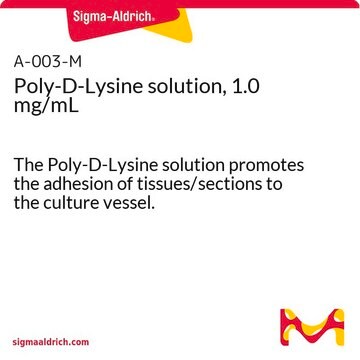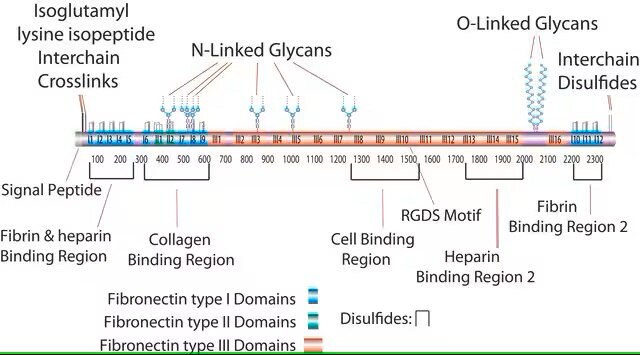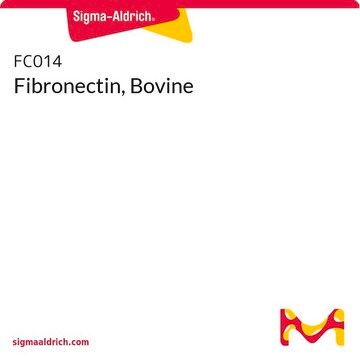S5171
Human Fibronectin
formulated with recombinant human fibronectin fragment III-C expressed in E. coli and fibronectin from human plasma, liquid, 2 mg/mL, suitable for cell culture
Synonym(s):
sFN
About This Item
Recommended Products
product name
Superfibronectin from human plasma, solution, BioReagent, suitable for cell culture
biological source
human
Quality Level
recombinant
expressed in E. coli
product line
BioReagent
form
solution
mol wt
~235-270 kDa
packaging
pkg of 5 mg
technique(s)
cell culture | mammalian: suitable
surface coverage
1 μg/cm2
UniProt accession no.
shipped in
ambient
storage temp.
2-8°C
Gene Information
human ... FN1(2335)
Application
Components
Caution
Preparation Note
Storage Class Code
10 - Combustible liquids
WGK
WGK 2
Flash Point(F)
Not applicable
Flash Point(C)
Not applicable
Certificates of Analysis (COA)
Search for Certificates of Analysis (COA) by entering the products Lot/Batch Number. Lot and Batch Numbers can be found on a product’s label following the words ‘Lot’ or ‘Batch’.
Already Own This Product?
Find documentation for the products that you have recently purchased in the Document Library.
Customers Also Viewed
Articles
Methods for lentiviral transduction of Jurkat cells were compared. Spinoculation was compared with overnight incubation with polybrene (hexadimethrine bromide) and fibronection-coated plates.
Fibronectin (FN) plays crucial roles in extracellular matrix fibril assembly and cellular interactions.
Cancer stem cell media, spheroid plates and cancer stem cell markers to culture and characterize CSC populations.
Protocols
Dilute fibronectin for cell attachment, varying per cell type. Coating protocol, products, and FAQs provided.
Our team of scientists has experience in all areas of research including Life Science, Material Science, Chemical Synthesis, Chromatography, Analytical and many others.
Contact Technical Service








